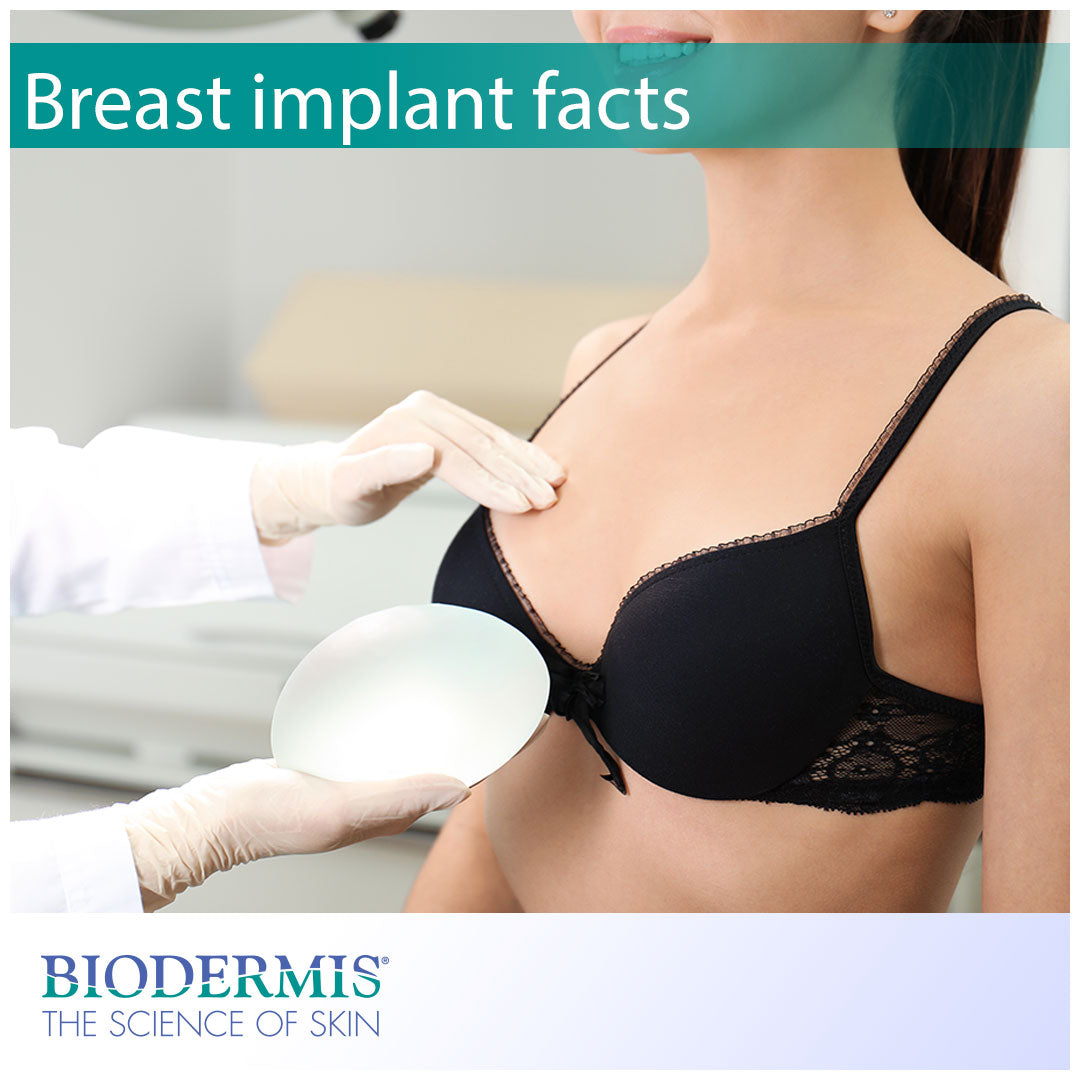Breast implant surgery, also known as a mammoplasty, is one of the most common types of cosmetic surgery with more than 280,000 procedures performed in the U.S. in 2019. With boob jobs being so popular, it’s understandable that women want to know everything they can prior to opting for this procedure. In this article, we will explore some interesting facts about breast implants so that you can make an educated decision regarding your surgical procedure.
Types of breast implants
When choosing what type of breast implants you want, you will generally have two options: silicone or saline implants. Silicone gel implants are available to all women who are at least 22 years of age per FDA regulations. Silicone is an attractive option for breast implants because it is a non-reactive substance that is hypoallergenic and doesn’t cause adverse reactions in the body. Silicone implants are thicker and denser that saline implants. Silicone implants can be compared to the consistency of a gummy bear candy, with the molecules hugging one another closely in a cohesive matrix. Saline implants, on the other hand, are filled with sterile salt water. The implant is first situated underneath the breast tissue and the surgeon then fills the implant with saline fluid to the desired volume.
Are there risks?
Like any surgical procedure, breast augmentation doesn’t come without its risks. Local complications are ones that happen near the surgery site. These include infection, chronic breast pain, numbness in the breast or nipple, scarring (contraction) around the implant, implant breakage or leakage, the need for corrective surgery, and dissatisfaction with the cosmetic appearance of the breasts after surgery. Within the first three years after a breast augmentation, almost half of all women will experience some form of local complication ranging from mild to severe. All breast implants will break eventually, but most of them are designed to last seven to 12 years. When rupture does occur, talk with your surgeon about possible treatment options.
Breast implant safety
While there are risks associated with any surgery, silicone gel breast implants are the most widely studied medical devices in history and are approved by the FDA for breast augmentation procedures. A majority of breast augmentation surgeries are successful and most women don’t experience any major post-operative complications. The FDA continuously monitors the safety of medical devices by conducting surveillance of patients’ experiences after surgery, as well as relaying any new safety data to physicians.
Can you breastfeed with implants?
Many new mothers wonder if they will still be able to breastfeed their baby after having implants. The short answer is yes, it is possible, but it depends on the size and placement of the implants. If the implants were inserted under the fold of the breast through the armpits, then there should be no breastfeeding complications. However, it should be noted that implants take up space where milk would otherwise be stored. For this reason, many women with implants have an inadequate supply of breast milk after having a baby. Talk with your surgeon if you are concerned about your ability to breastfeed.
Surgical incisions and scars
To insert breast implants into the body, your surgeon will have to make a surgical incision. There are three main types of surgical incisions that your surgeon may utilize during your procedure. These include inframammary, periareolar, and transaxillary incisions. Inframammary incisions are made along the crease of the lower breast (about one to two inches in length). Periareolar incisions are made along the outer perimeter of the lower areola in the shape of a semicircle. Transaxillary incisions are made in the armpit region, also about one to two inches in length.
Scarring is the inevitable result of any surgical incision. To treat your post-operative scars, you can use medical-grade silicone, the gold standard in topical scar treatment. Medical silicone for scars can be purchased through your physician or online at biodermis.com.
Biodermis is an innovative market leader with 30 years of expertise in the medical silicone industry. Visit Biodermis.com today to explore a complete range of scar management and post-operative care solutions.
Biodermis offers custom tailored referral programs designed to simplify and reduce the cost of your patients' post-op care. Additionally, we offer professional pricing if you opt to retail our products. Give us a call at 800.322.3729, and we will be happy to provide additional details on these programs.





